page
Triangle University Internship Program
May 15–17, 2018 at the National Humanities Center
Project Background
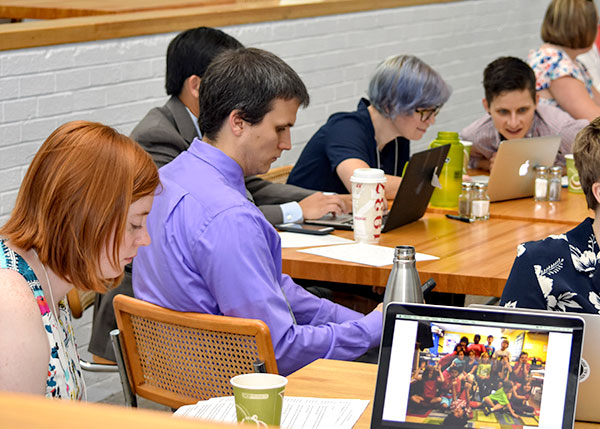
Since 2016, the National Humanities Center has organized and hosted a series of activities designed to train PhD students in the humanities in curriculum design and lesson development. Working in collaboration with Duke University, the University of North Carolina at Chapel Hill, and North Carolina State University, the Triangle University Internship Program has served seventeen students over the past two years from diverse disciplines, including history, literature, American studies, art history, cultural anthropology, religious studies, and computational media arts and cultures. In 2018, the University of North Carolina at Greensboro and Virginia Tech will join the program.
The Center welcomes the next cohort of graduate students to the program in spring 2018. These students, who have been recruited and nominated by our university partners, will attend face-to-face sessions at the Center and receive immersive feedback on their work in a collaborative seminar-style format.
2018 Project Goals
The Triangle University Internship Program accepted twenty-one PhD students in the humanities to participate in a six-week training program. The primary goals of this program included:
- identifying a compelling topic for research to develop instructional support materials
- training participants on the development of classroom-ready materials for the secondary or university classroom
- providing structured feedback on the practice and implementation of writing for a broader audience rather than solely an academic one
- authoring, revising, and publishing classroom-ready lessons in the Center’s digital repository
- developing skills that are marketable and valuable for later employment.
More than simply developing a strong pedagogical understanding, this program also provided a broader introduction to the National Humanities Center and its work in humanities education and outreach. These activities sought to:
- integrate the work of the internship with ongoing Center initiatives and workplace culture
- identify themes that offer strong cross-disciplinary opportunities and encourage advocacy and outreach at the school, university, and national level
- provide discipline-specific training in curriculum design and lesson writing
- integrate emerging technology into the final work design (in 2018, we will feature geospatial tools)
- result in the publication and promotion of the final work through the Center’s national network, including associated professional organizations.
Meet the Team
Kaylee Alexander
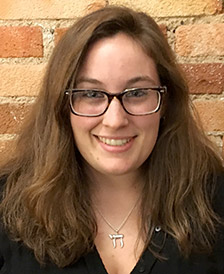 Alexander is a PhD candidate in the Department of Art, Art History & Visual Studies at Duke University, where she is concurrently enrolled in the College Teaching certificate program. Kaylee is also currently a research assistant with the Duke Art, Law & Markets Initiative (DALMI). Kaylee’s research focuses on nineteenth-century French visual culture and the material culture of death and burial in France and the United States. Under the supervision of Professor Neil McWilliam, Kaylee is conducting research for her dissertation in which she examines the aggregate production and consumption of funerary monuments in nineteenth-century Paris at the intersection of visual studies, material culture, and cultural economics. Kaylee previously received a BA in art history from New York University in 2013 and an MA in the history of art and architecture from NYU’s Institute of Fine Arts in 2015.
Alexander is a PhD candidate in the Department of Art, Art History & Visual Studies at Duke University, where she is concurrently enrolled in the College Teaching certificate program. Kaylee is also currently a research assistant with the Duke Art, Law & Markets Initiative (DALMI). Kaylee’s research focuses on nineteenth-century French visual culture and the material culture of death and burial in France and the United States. Under the supervision of Professor Neil McWilliam, Kaylee is conducting research for her dissertation in which she examines the aggregate production and consumption of funerary monuments in nineteenth-century Paris at the intersection of visual studies, material culture, and cultural economics. Kaylee previously received a BA in art history from New York University in 2013 and an MA in the history of art and architecture from NYU’s Institute of Fine Arts in 2015.
John Bechtold
 Bechtold is an Iraq War veteran and PhD Fellow at the University of North Carolina at Chapel Hill. He has begun to cultivate a growing passion in documentary storytelling and has just completed a multimedia documentary project that tells the stories of how our wounded veterans are reclaiming their lives after their experience in war. He is particularly interested in the lived experience of people affected by political violence and hopes to return to Iraq to consider how Iraqi citizens are constructing memories of war. When he is not making pictures on a street somewhere in the world, John can be found at home cooking tasty food or trying to stand on his head in yoga class. (It’s not working.)
Bechtold is an Iraq War veteran and PhD Fellow at the University of North Carolina at Chapel Hill. He has begun to cultivate a growing passion in documentary storytelling and has just completed a multimedia documentary project that tells the stories of how our wounded veterans are reclaiming their lives after their experience in war. He is particularly interested in the lived experience of people affected by political violence and hopes to return to Iraq to consider how Iraqi citizens are constructing memories of war. When he is not making pictures on a street somewhere in the world, John can be found at home cooking tasty food or trying to stand on his head in yoga class. (It’s not working.)
Corey Bray
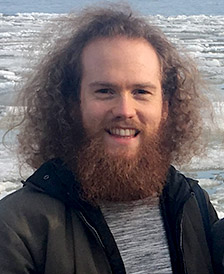 Bray was born and raised in Sacramento, CA, before moving to Durham, NC. He attended Duke University and received his degree in global cultural studies. He spent two years working toward a mechanical engineering degree before realizing that he was destined for consulting if he did not alter his plans, so he ditched that path to pursue culture theory. It was also at this time he began to study education, and he eventually received a minor in the subject. After undergraduate work, he returned to Duke to pursue a Master of Arts in Teaching (MAT) and then began working at Northern High School in Durham, NC. During the MAT student teaching he taught IB English III & IV at Hillside High School and English II and AP English IV at Southern High School. He now teaches English III and IV at Northern.
Bray was born and raised in Sacramento, CA, before moving to Durham, NC. He attended Duke University and received his degree in global cultural studies. He spent two years working toward a mechanical engineering degree before realizing that he was destined for consulting if he did not alter his plans, so he ditched that path to pursue culture theory. It was also at this time he began to study education, and he eventually received a minor in the subject. After undergraduate work, he returned to Duke to pursue a Master of Arts in Teaching (MAT) and then began working at Northern High School in Durham, NC. During the MAT student teaching he taught IB English III & IV at Hillside High School and English II and AP English IV at Southern High School. He now teaches English III and IV at Northern.
Chris Bunin
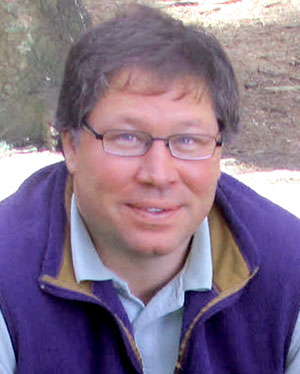 Bunin is a teacher of A.P. human geography, world history, and geospatial technologies at Albemarle High School in Charlottesville, Virginia. During the past decade he has collaborated on projects focused on leveraging geospatial technologies and geo-literacy in the classroom. These include “The Virginia Experiment” and “America on the World Stage” Teaching American History Projects; the iSTEM Teacher Scholars Program: An Applied Geospatial Curriculum for Middle Schools; “Transatlantic Teacher Scholars: Change Over Time and Place in the Meuse-Argonne American Cemetery”; Esri’s GeoInquiries for U.S. History and Human Geography; the U.S. Census Bureau’s Statistics in Schools Program; and the award winning book, Jamestown to Appomattox: Mapping U.S. History Using GIS (Carte Diem Press). He is also assistant professor of geography at Piedmont Virginia Community College and a member of the Virginia Geographic Alliance Steering Committee.
Bunin is a teacher of A.P. human geography, world history, and geospatial technologies at Albemarle High School in Charlottesville, Virginia. During the past decade he has collaborated on projects focused on leveraging geospatial technologies and geo-literacy in the classroom. These include “The Virginia Experiment” and “America on the World Stage” Teaching American History Projects; the iSTEM Teacher Scholars Program: An Applied Geospatial Curriculum for Middle Schools; “Transatlantic Teacher Scholars: Change Over Time and Place in the Meuse-Argonne American Cemetery”; Esri’s GeoInquiries for U.S. History and Human Geography; the U.S. Census Bureau’s Statistics in Schools Program; and the award winning book, Jamestown to Appomattox: Mapping U.S. History Using GIS (Carte Diem Press). He is also assistant professor of geography at Piedmont Virginia Community College and a member of the Virginia Geographic Alliance Steering Committee.
Travis Sutton Byrd
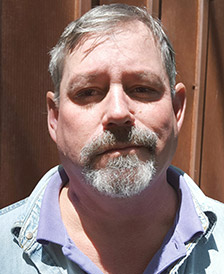 Byrd is a PhD candidate and the Graduate Excellence Fellow for the 2016–17 academic year at the University of North Carolina at Greensboro. He received his BA in history and environmental science from the University of North Carolina at Asheville in 1997 and his Master of Liberal Arts in Depression-era studies from the same institution in 2011. He is the author of Unraveled: Labor Strife and Carolina Folk during the Marion Textile Strikes of 1929 (Knoxville: University of Tennessee Press, 2015). His forthcoming book, Tangled: Organizing the Unorganized in the Southern Textile Belt, 1930–1934 is to be published by the University of Tennessee Press in the spring of 2018. He is also a previous recipient of the Thomas Wolfe Prize for Short Fiction.
Byrd is a PhD candidate and the Graduate Excellence Fellow for the 2016–17 academic year at the University of North Carolina at Greensboro. He received his BA in history and environmental science from the University of North Carolina at Asheville in 1997 and his Master of Liberal Arts in Depression-era studies from the same institution in 2011. He is the author of Unraveled: Labor Strife and Carolina Folk during the Marion Textile Strikes of 1929 (Knoxville: University of Tennessee Press, 2015). His forthcoming book, Tangled: Organizing the Unorganized in the Southern Textile Belt, 1930–1934 is to be published by the University of Tennessee Press in the spring of 2018. He is also a previous recipient of the Thomas Wolfe Prize for Short Fiction.
Karen Carroll Cave NHC Staff
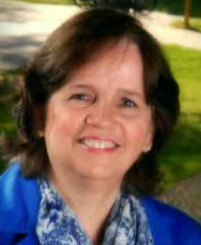 Cave is the senior writer and researcher for the National Humanities Center’s Education Department. In 2014, she finished a thirty-year career in the high school classroom, having taught Advanced Placement US History, English Language, and Psychology, honors/standard levels of American History, Sociology, and Freshman English, and other courses. She developed and taught a leadership development course for the North Carolina Virtual Public School for nine years and served in several administrative capacities. She has presented to many conferences and groups and has published articles in the North Carolina Historical Review and the Tar Heel News. She authored Windows to the Past: Primitive Watercolors from Guilford County, North Carolina in the 1820s (Greensboro Historical Museum, 1983) and was the photographic researcher for Greensboro: A Chosen Center, 1st ed. (Greensboro Historical Museum, 1982). She holds a PhD in curriculum and teaching from the University of North Carolina at Greensboro, an MA in American History from East Carolina University, and a BA in history from North Carolina State University. She holds a post-master’s certificate in adult learning and college teaching from the University of North Carolina at Greensboro and is certified by the National Board for Professional Teaching Standards.
Cave is the senior writer and researcher for the National Humanities Center’s Education Department. In 2014, she finished a thirty-year career in the high school classroom, having taught Advanced Placement US History, English Language, and Psychology, honors/standard levels of American History, Sociology, and Freshman English, and other courses. She developed and taught a leadership development course for the North Carolina Virtual Public School for nine years and served in several administrative capacities. She has presented to many conferences and groups and has published articles in the North Carolina Historical Review and the Tar Heel News. She authored Windows to the Past: Primitive Watercolors from Guilford County, North Carolina in the 1820s (Greensboro Historical Museum, 1983) and was the photographic researcher for Greensboro: A Chosen Center, 1st ed. (Greensboro Historical Museum, 1982). She holds a PhD in curriculum and teaching from the University of North Carolina at Greensboro, an MA in American History from East Carolina University, and a BA in history from North Carolina State University. She holds a post-master’s certificate in adult learning and college teaching from the University of North Carolina at Greensboro and is certified by the National Board for Professional Teaching Standards.
Andy Dojack
 Dojack currently teaches coding and software design at the Greene County Technical Education Center in Stanardsville, Virginia. In almost two decades in education he has taught special education, world geography, and digital mapping. Believing that student-facilitated modes of instruction are most beneficial to learning, he has focused intently on designing a classroom that is student-driven and student-centered. He has led or co-instructed numerous teacher-focused ArcGIS Online workshops in addition to serving as co-instructor for the online class Putting Social Studies in its Place. He has presented at numerous state conferences on the merits of including GIS in traditional humanities curricula.
Dojack currently teaches coding and software design at the Greene County Technical Education Center in Stanardsville, Virginia. In almost two decades in education he has taught special education, world geography, and digital mapping. Believing that student-facilitated modes of instruction are most beneficial to learning, he has focused intently on designing a classroom that is student-driven and student-centered. He has led or co-instructed numerous teacher-focused ArcGIS Online workshops in addition to serving as co-instructor for the online class Putting Social Studies in its Place. He has presented at numerous state conferences on the merits of including GIS in traditional humanities curricula.
Samantha Jo Fried
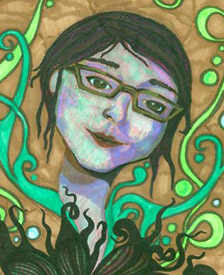 Fried is a 4th-year PhD student in the Department of Science, Technology, and Society at Virginia Tech. She is also a 4th-year graduate research fellow in the Remote Sensing Interdisciplinary Graduate Education Program (IGEP), also at Virginia Tech. Her research focuses on earth remote-sensing technologies, and the political and ethical implications of viewing and mapping the earth from above. Her favorite theoretical frameworks include philosophy of technology (specifically post-phenomenology), feminist epistemologies of science and technology, virtue ethics, and infrastructure studies. In her spare time, Samantha is very involved with the Graduate Student Assembly at Virginia Tech, and is the president-elect for AY2018-19. She also likes tap dancing, knitting, and singing. She belongs to two cats, named Croissant and Cake Pop.
Fried is a 4th-year PhD student in the Department of Science, Technology, and Society at Virginia Tech. She is also a 4th-year graduate research fellow in the Remote Sensing Interdisciplinary Graduate Education Program (IGEP), also at Virginia Tech. Her research focuses on earth remote-sensing technologies, and the political and ethical implications of viewing and mapping the earth from above. Her favorite theoretical frameworks include philosophy of technology (specifically post-phenomenology), feminist epistemologies of science and technology, virtue ethics, and infrastructure studies. In her spare time, Samantha is very involved with the Graduate Student Assembly at Virginia Tech, and is the president-elect for AY2018-19. She also likes tap dancing, knitting, and singing. She belongs to two cats, named Croissant and Cake Pop.
Katie Garahan
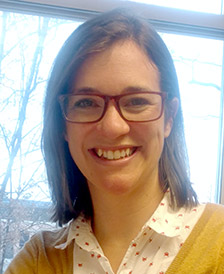 Garahan is a PhD Candidate in rhetoric and writing at Virginia Tech. She holds a BA in English from Gardner-Webb University, an MA in English, and a Certificate in Women’s and Gender Studies from Virginia Tech. Her research interests include the rhetoric of education policy and reform, professional identity, gender and education, and writing center theory and practice.
Garahan is a PhD Candidate in rhetoric and writing at Virginia Tech. She holds a BA in English from Gardner-Webb University, an MA in English, and a Certificate in Women’s and Gender Studies from Virginia Tech. Her research interests include the rhetoric of education policy and reform, professional identity, gender and education, and writing center theory and practice.
Erin Kate Grady
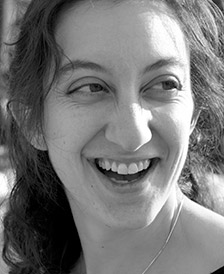 Grady is a doctoral candidate in art history at the University of North Carolina at Chapel Hill. She is preparing a dissertation entitled “O admirandus apium fervor! Femininity and the Bee in Southern Italian Exultet Rolls.” This project focuses on feminine and nature imagery in a group of thirty Italian manuscript rolls dated from the tenth through fifteenth centuries. She is also interested in the history and visual culture of the Dominican Order from the early thirteenth century through the fifteenth century in Spain, France, and Italy. Liturgy, chant, and the materiality of liturgical books and objects from the tenth through fifteenth centuries are additional areas of interest.
Grady is a doctoral candidate in art history at the University of North Carolina at Chapel Hill. She is preparing a dissertation entitled “O admirandus apium fervor! Femininity and the Bee in Southern Italian Exultet Rolls.” This project focuses on feminine and nature imagery in a group of thirty Italian manuscript rolls dated from the tenth through fifteenth centuries. She is also interested in the history and visual culture of the Dominican Order from the early thirteenth century through the fifteenth century in Spain, France, and Italy. Liturgy, chant, and the materiality of liturgical books and objects from the tenth through fifteenth centuries are additional areas of interest.
Michael R. Grigoni
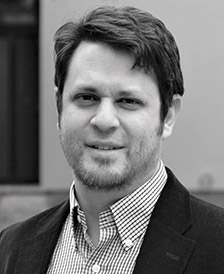 Grigoni is a PhD candidate in the Graduate Program in Religion at Duke University. His research and teaching interests center on Christian theology, ethics, ethnography, and American religion. His dissertation project aims to develop a theological ethics of handgun ownership based on ethnographic fieldwork he is currently conducting among Christian handgun owners in the Triangle region of North Carolina.
Grigoni is a PhD candidate in the Graduate Program in Religion at Duke University. His research and teaching interests center on Christian theology, ethics, ethnography, and American religion. His dissertation project aims to develop a theological ethics of handgun ownership based on ethnographic fieldwork he is currently conducting among Christian handgun owners in the Triangle region of North Carolina.
Marc Keith
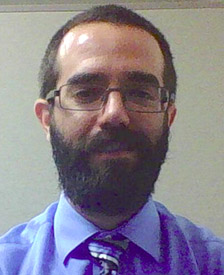 Keith is a doctoral student studying modern and contemporary literature at the University of North Carolina at Greensboro. Marc’s research focuses on working class literature and post-human theory, examining the relationship between somatic experience, nature, and technology. Marc has presented at several national and international conferences, and hopes to complete his dissertation, Somatic Posthumanism: Sex, Politics, and Environment in Working Class Literature, in 2019.
Keith is a doctoral student studying modern and contemporary literature at the University of North Carolina at Greensboro. Marc’s research focuses on working class literature and post-human theory, examining the relationship between somatic experience, nature, and technology. Marc has presented at several national and international conferences, and hopes to complete his dissertation, Somatic Posthumanism: Sex, Politics, and Environment in Working Class Literature, in 2019.
Sinja Küppers
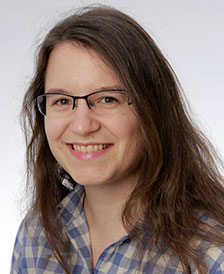 Küppers is a first-year PhD student in classical studies and works as a teaching and research assistant at Duke University. Before moving to Durham she completed a BA in ancient languages and cultures at the University of Cologne, including a research stay at Brown University, and an MSt in Greek and Latin languages and literature at the University of Oxford. Her current research focuses on epic and lyric poetry in Greek and Latin literature and on the blending of genres and literary styles. Supported by the Duke Professional Development Grant, Sinja has co-organized the first Duke/UNC First-Generation Graduate Symposium in April 2018, and is involved in establishing a first-generation community of graduate students and alumni at Duke.
Küppers is a first-year PhD student in classical studies and works as a teaching and research assistant at Duke University. Before moving to Durham she completed a BA in ancient languages and cultures at the University of Cologne, including a research stay at Brown University, and an MSt in Greek and Latin languages and literature at the University of Oxford. Her current research focuses on epic and lyric poetry in Greek and Latin literature and on the blending of genres and literary styles. Supported by the Duke Professional Development Grant, Sinja has co-organized the first Duke/UNC First-Generation Graduate Symposium in April 2018, and is involved in establishing a first-generation community of graduate students and alumni at Duke.
Sarvnaz Lotfi
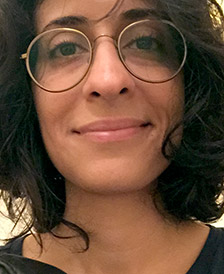 Lotfi is currently a PhD candidate in the Department of Science, Technology & Society at Virginia Tech, holding prior degrees in anthropology and neuroscience (BA with honors, Oberlin College) and international affairs (MA, The New School). She is joining the Triangle University Internship Program on the heels of a fellowship this spring at the Center for the History of Political Economy at Duke University. In that time, she witnessed and benefitted from an open, cross-disciplinary ethos of the Research Triangle. This local environment, together with the NHC’s genuine concern with pedagogy, promises to invigorate a Deweyian commitment she holds dear: to foster active communities in which learning proceeds through inquiry-led experience, inclusive of a potentially wide range of academic and professional orientations. Such commitments also inform her research practice, which at present involves completing a genealogical history of research and development.
Lotfi is currently a PhD candidate in the Department of Science, Technology & Society at Virginia Tech, holding prior degrees in anthropology and neuroscience (BA with honors, Oberlin College) and international affairs (MA, The New School). She is joining the Triangle University Internship Program on the heels of a fellowship this spring at the Center for the History of Political Economy at Duke University. In that time, she witnessed and benefitted from an open, cross-disciplinary ethos of the Research Triangle. This local environment, together with the NHC’s genuine concern with pedagogy, promises to invigorate a Deweyian commitment she holds dear: to foster active communities in which learning proceeds through inquiry-led experience, inclusive of a potentially wide range of academic and professional orientations. Such commitments also inform her research practice, which at present involves completing a genealogical history of research and development.
Ariel Ludwig
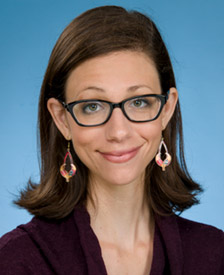 Ludwig is a doctoral student in Virginia Tech’s Department of Science and Technology in Society. She earned a bachelor’s degree in English literature from Kenyon College. After completing Teach for America in the Mississippi Delta, she earned a master’s degree in Public Health from Yale University. Following this, she worked in the fields of correctional public health and reentry. Her qualitative dissertation research approaches the intersection of health and the criminal justice system in New York City jails. This is one facet of her larger body of research approaching carceral epistemologies and technologies in the United States.
Ludwig is a doctoral student in Virginia Tech’s Department of Science and Technology in Society. She earned a bachelor’s degree in English literature from Kenyon College. After completing Teach for America in the Mississippi Delta, she earned a master’s degree in Public Health from Yale University. Following this, she worked in the fields of correctional public health and reentry. Her qualitative dissertation research approaches the intersection of health and the criminal justice system in New York City jails. This is one facet of her larger body of research approaching carceral epistemologies and technologies in the United States.
Beth Miller
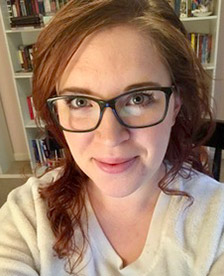 Miller is a PhD student at the University of North Carolina at Greensboro studying post-1900 global Anglophone literature with an emphasis on ecocriticism and the contemporary.
Miller is a PhD student at the University of North Carolina at Greensboro studying post-1900 global Anglophone literature with an emphasis on ecocriticism and the contemporary.
Andy Mink NHC Staff
 Mink is the vice president for education programs at the National Humanities Center. Previously he served as the executive director of LEARN NC at the University of North Carolina at Chapel Hill after working as the director of outreach and education for the Virginia Center for Digital History and then the Curry School of Education at the University of Virginia. With all these organizations, he has designed and led professional development programs for K–12 and university educators that focus on hands-on instructional models. In 2002, Andy was named the National Experiential Educator of the Year by the National Society of Experiential Education. He is a Master Teacher with the Organization of American Historians in their Distinguished Speaker Program and also serves on the executive board of the National Council for Social Studies and the board of trustees for the National Council for History Education. He was awarded the 2015 Outstanding Support for Geography Education Award by the National Council for Geographic Education, and he serves as a GeoMentor with the Association of American Geographers.
Mink is the vice president for education programs at the National Humanities Center. Previously he served as the executive director of LEARN NC at the University of North Carolina at Chapel Hill after working as the director of outreach and education for the Virginia Center for Digital History and then the Curry School of Education at the University of Virginia. With all these organizations, he has designed and led professional development programs for K–12 and university educators that focus on hands-on instructional models. In 2002, Andy was named the National Experiential Educator of the Year by the National Society of Experiential Education. He is a Master Teacher with the Organization of American Historians in their Distinguished Speaker Program and also serves on the executive board of the National Council for Social Studies and the board of trustees for the National Council for History Education. He was awarded the 2015 Outstanding Support for Geography Education Award by the National Council for Geographic Education, and he serves as a GeoMentor with the Association of American Geographers.
Sarah Plummer
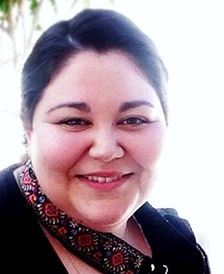 Plummer is a doctoral student in Virginia Tech’s interdisciplinary program ASPECT (Alliance of Social, Political, Ethical and Cultural Thought), and her research focuses on the intersection of protest theater, participatory art, ritual studies, and radical ecology. Sarah has seven years of experience as a journalist covering state, regional, county, and municipal governments for The Register-Herald in Beckley. She has taught literature, freshman composition, writing from research, and introductory humanities courses at Virginia Tech and Bluefield State College. Sarah has an MA in English literature from Virginia Tech and an undergraduate degree in theatre from Berea College.
Plummer is a doctoral student in Virginia Tech’s interdisciplinary program ASPECT (Alliance of Social, Political, Ethical and Cultural Thought), and her research focuses on the intersection of protest theater, participatory art, ritual studies, and radical ecology. Sarah has seven years of experience as a journalist covering state, regional, county, and municipal governments for The Register-Herald in Beckley. She has taught literature, freshman composition, writing from research, and introductory humanities courses at Virginia Tech and Bluefield State College. Sarah has an MA in English literature from Virginia Tech and an undergraduate degree in theatre from Berea College.
Anderson Rouse
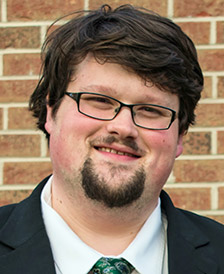 Rouse is a PhD candidate in the History Department at the University of North Carolina at Greensboro. He completed his bachelor’s degree in political science at Bob Jones University and his MA, in history, at Clemson University. His research focuses on religion in the South between 1870 and 2000, and explores the southern roots of the Christian Right through the careers of evangelists. He also serves as a docent at the Blandwood Mansion in Greensboro, the former home of North Carolina governor John Motley Morehead.
Rouse is a PhD candidate in the History Department at the University of North Carolina at Greensboro. He completed his bachelor’s degree in political science at Bob Jones University and his MA, in history, at Clemson University. His research focuses on religion in the South between 1870 and 2000, and explores the southern roots of the Christian Right through the careers of evangelists. He also serves as a docent at the Blandwood Mansion in Greensboro, the former home of North Carolina governor John Motley Morehead.
Sarah Soleim
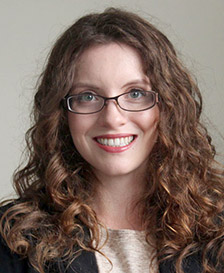 Soleim is a doctoral candidate in public history at North Carolina State University. Her dissertation explores the professionalization of public historical practice in the United States. Soleim teaches courses on modern United States history and the history of charity and philanthropy. She is also an educator at the Joel Lane Museum House in Raleigh.
Soleim is a doctoral candidate in public history at North Carolina State University. Her dissertation explores the professionalization of public historical practice in the United States. Soleim teaches courses on modern United States history and the history of charity and philanthropy. She is also an educator at the Joel Lane Museum House in Raleigh.
Emily Stout
 Stout is a social studies educator at Enloe Magnet High School in Raleigh, NC, and a first-year fellow at Duke TeachHouse. Her primary classroom focus is civics and government, and she is excited to bring this passion to the National Humanities Center this spring. Growing up in Cranbury, NJ, Emily got her first glimpse into government when her father served as mayor of her small town. She graduated from Duke University in 2016 with a BA in public policy and a teaching license. She is fluent in French and spent several months studying in Paris. Outside of school, Emily enjoys hiking, reading, and singing. She has visited eleven foreign countries, and spent her spring break traveling in Cuba. She is grateful for the opportunity to intern at the NHC and looks forward to bringing innovative scholarship to her classroom.
Stout is a social studies educator at Enloe Magnet High School in Raleigh, NC, and a first-year fellow at Duke TeachHouse. Her primary classroom focus is civics and government, and she is excited to bring this passion to the National Humanities Center this spring. Growing up in Cranbury, NJ, Emily got her first glimpse into government when her father served as mayor of her small town. She graduated from Duke University in 2016 with a BA in public policy and a teaching license. She is fluent in French and spent several months studying in Paris. Outside of school, Emily enjoys hiking, reading, and singing. She has visited eleven foreign countries, and spent her spring break traveling in Cuba. She is grateful for the opportunity to intern at the NHC and looks forward to bringing innovative scholarship to her classroom.
Libby Taylor NHC Staff
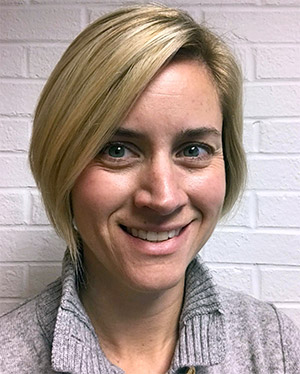 Taylor is the coordinator of education programs for the National Humanities Center. She currently oversees the webinar series for America in Class and coordinates the Center’s professional development programs for teachers. Libby previously taught high school English language arts in both Durham and Wake County schools. Prior to teaching, Libby was an event manager for Fight For Children, a nonprofit in Washington, D.C., and The Atlantic magazine. She holds a master’s degree in teaching from the University of North Carolina at Chapel Hill and bachelor’s degrees in English and art history from Vanderbilt University.
Taylor is the coordinator of education programs for the National Humanities Center. She currently oversees the webinar series for America in Class and coordinates the Center’s professional development programs for teachers. Libby previously taught high school English language arts in both Durham and Wake County schools. Prior to teaching, Libby was an event manager for Fight For Children, a nonprofit in Washington, D.C., and The Atlantic magazine. She holds a master’s degree in teaching from the University of North Carolina at Chapel Hill and bachelor’s degrees in English and art history from Vanderbilt University.
Sungwoo Um
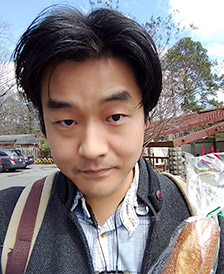 Um is a PhD candidate in the Philosophy Department and the assistant director of the Center for Comparative Philosophy (CCP) at Duke University. He holds philosophy degrees from Oxford University (BPhil) and Yonsei University (BA and MA). Mainly working in ethics, moral psychology, and social and political philosophy, his philosophical journey has been an endeavor to harmonize virtue and happiness in a good human life, with a focus on the interpersonal and social aspects. “What are the virtues that constitute the flourishing life of social beings like ourselves?”
Um is a PhD candidate in the Philosophy Department and the assistant director of the Center for Comparative Philosophy (CCP) at Duke University. He holds philosophy degrees from Oxford University (BPhil) and Yonsei University (BA and MA). Mainly working in ethics, moral psychology, and social and political philosophy, his philosophical journey has been an endeavor to harmonize virtue and happiness in a good human life, with a focus on the interpersonal and social aspects. “What are the virtues that constitute the flourishing life of social beings like ourselves?”
Ashley Werlinich
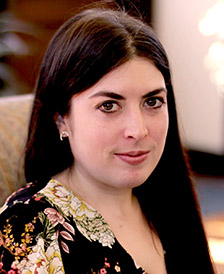 Werlinich is an English literature doctoral student and teaching fellow at the University of North Carolina at Chapel Hill. She is interested in the intersections between seventeenth-century natural philosophy, medicine, and drama—primarily in considering how these intersections can help us understand questions of body and embodiment in early modern literature. She also studies early modern technologies—including medical, proto-scientific, and printing technologies—and investigates how such advancements in technology shape identity and perception. In addition to her work as a graduate teaching fellow, Ashley works as a rare books and special collections instructor with Wilson Library Special Collections.
Werlinich is an English literature doctoral student and teaching fellow at the University of North Carolina at Chapel Hill. She is interested in the intersections between seventeenth-century natural philosophy, medicine, and drama—primarily in considering how these intersections can help us understand questions of body and embodiment in early modern literature. She also studies early modern technologies—including medical, proto-scientific, and printing technologies—and investigates how such advancements in technology shape identity and perception. In addition to her work as a graduate teaching fellow, Ashley works as a rare books and special collections instructor with Wilson Library Special Collections.
Savannah Windham
 After graduating from the University of Kansas with a BA in English in 2012, Windham taught English as a Foreign Language in Spain for a year and was inspired to make teaching her career. In 2013 she returned to pursue a Master of Arts in Teaching (MAT) degree at Duke University. Since 2014 she has taught English and Trends in Contemporary Literature at Northern High School. Savannah is currently a Stanford Hollyhock Teaching Fellow and Duke TeachHouse Fellow.
After graduating from the University of Kansas with a BA in English in 2012, Windham taught English as a Foreign Language in Spain for a year and was inspired to make teaching her career. In 2013 she returned to pursue a Master of Arts in Teaching (MAT) degree at Duke University. Since 2014 she has taught English and Trends in Contemporary Literature at Northern High School. Savannah is currently a Stanford Hollyhock Teaching Fellow and Duke TeachHouse Fellow.
Garrett Wright
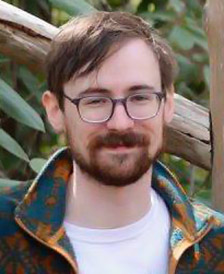 Wright is a PhD candidate in history at the University of North Carolina at Chapel Hill. He is currently working on his dissertation, which focuses on American Indian travelers from the Central Great Plains in the eighteenth century. He is interested in cross-cultural diplomacy in early America, the history of roads, and twentieth-century American Indian political activism.
Wright is a PhD candidate in history at the University of North Carolina at Chapel Hill. He is currently working on his dissertation, which focuses on American Indian travelers from the Central Great Plains in the eighteenth century. He is interested in cross-cultural diplomacy in early America, the history of roads, and twentieth-century American Indian political activism.